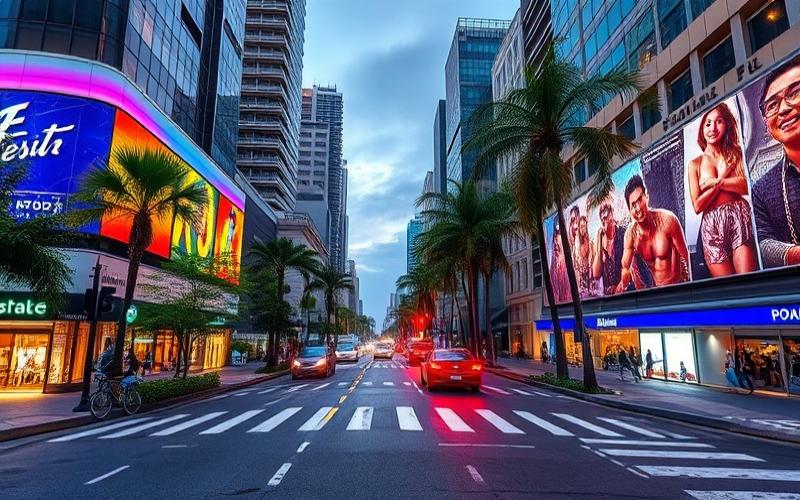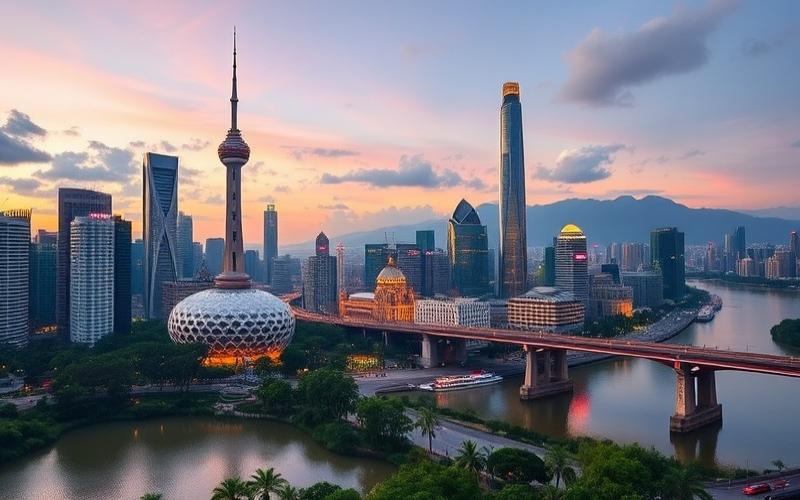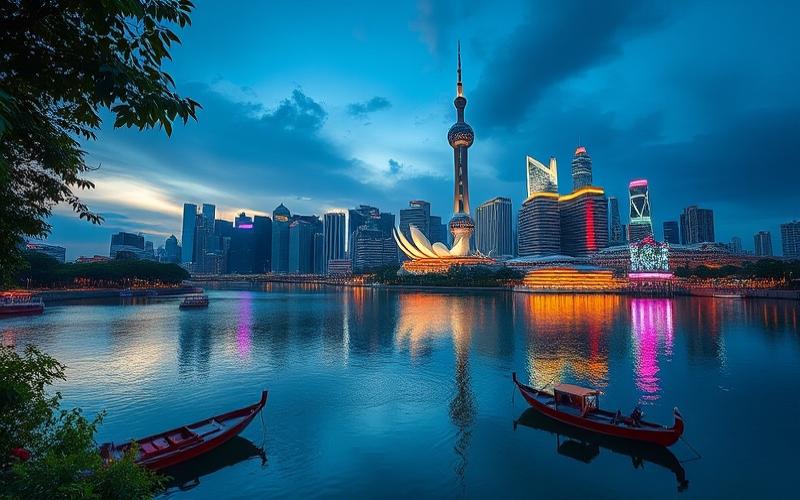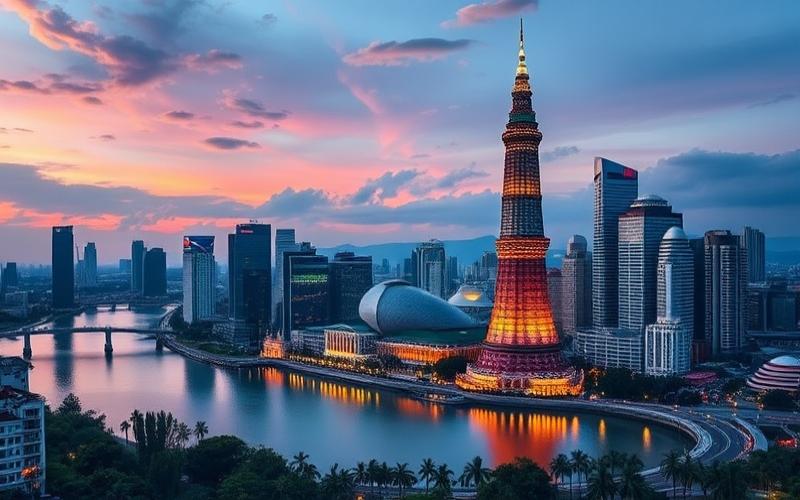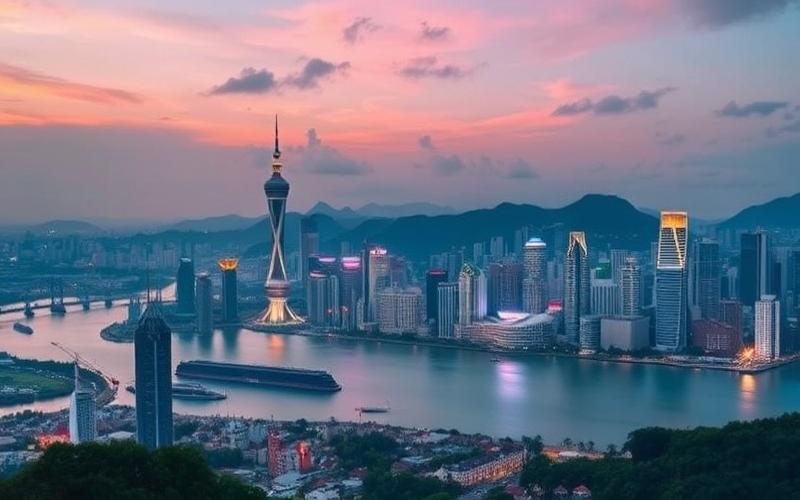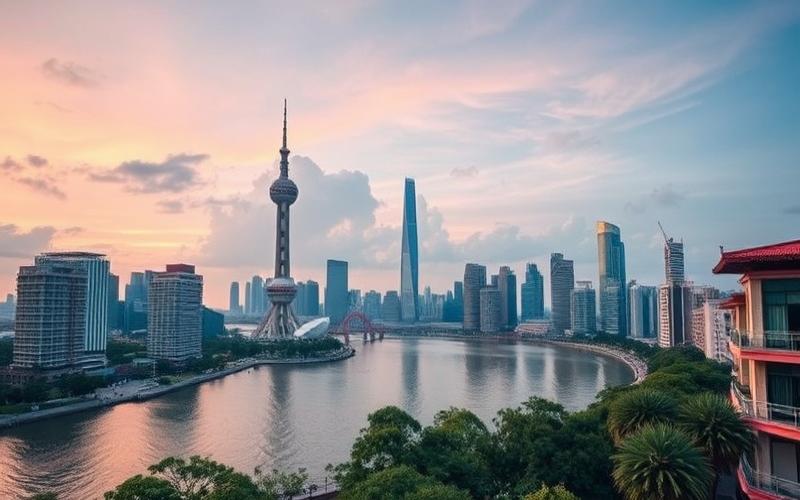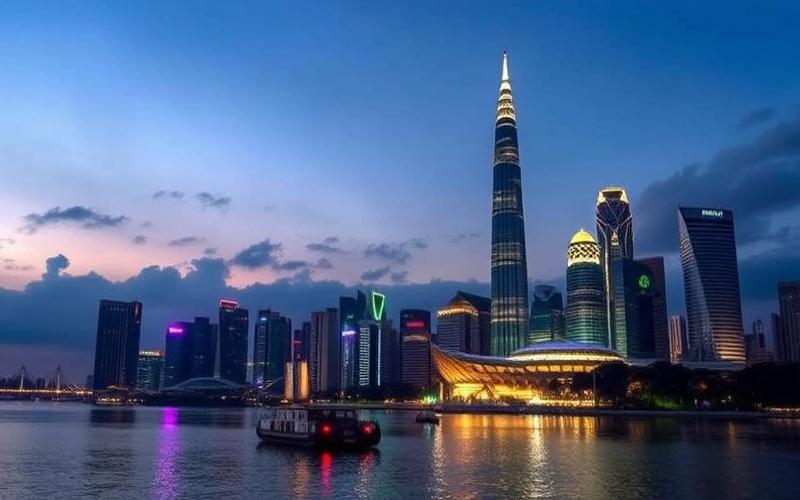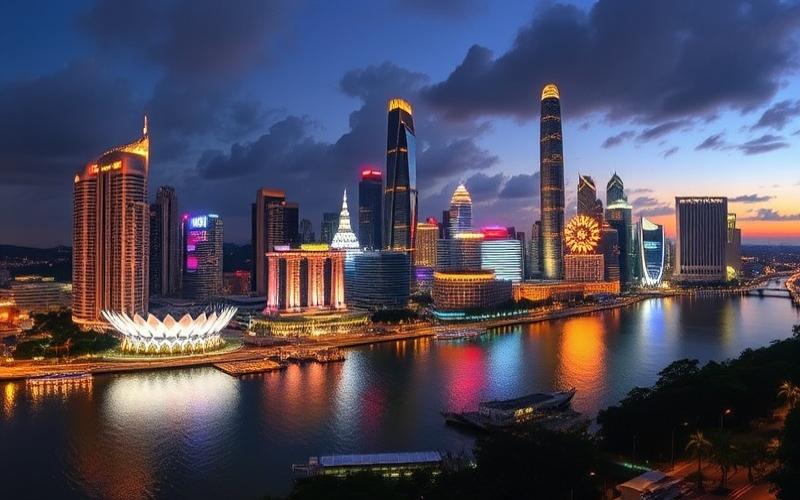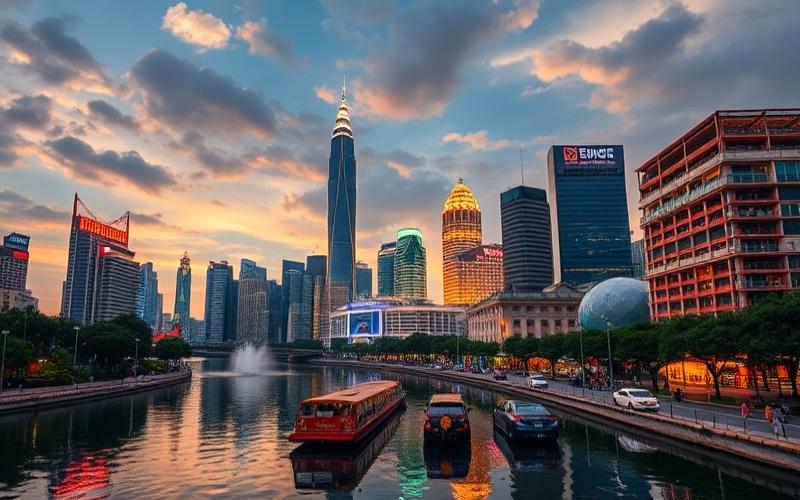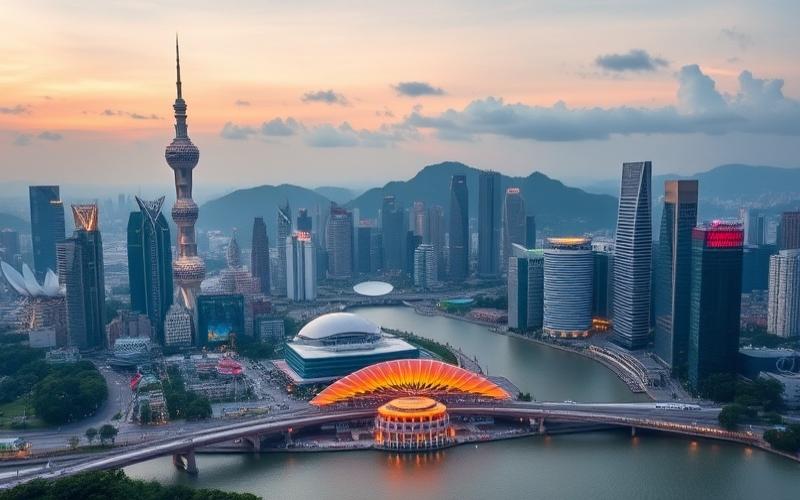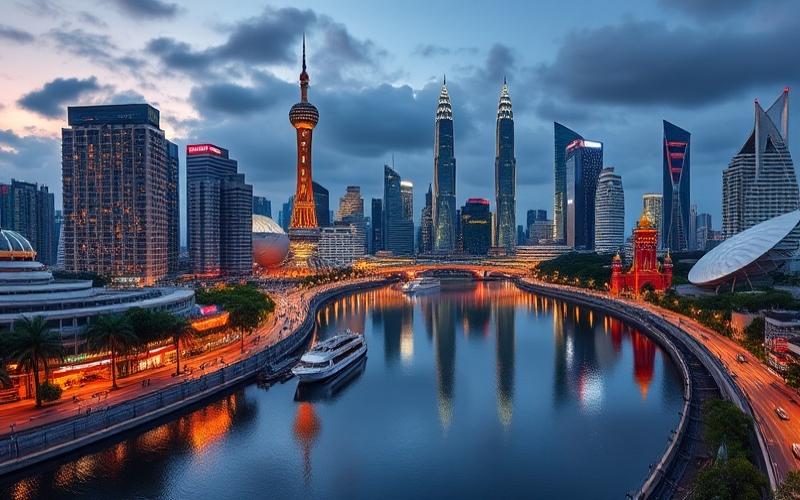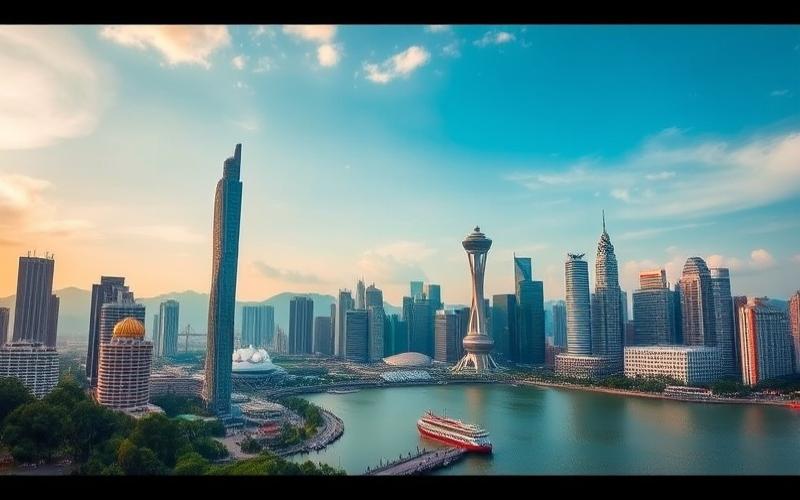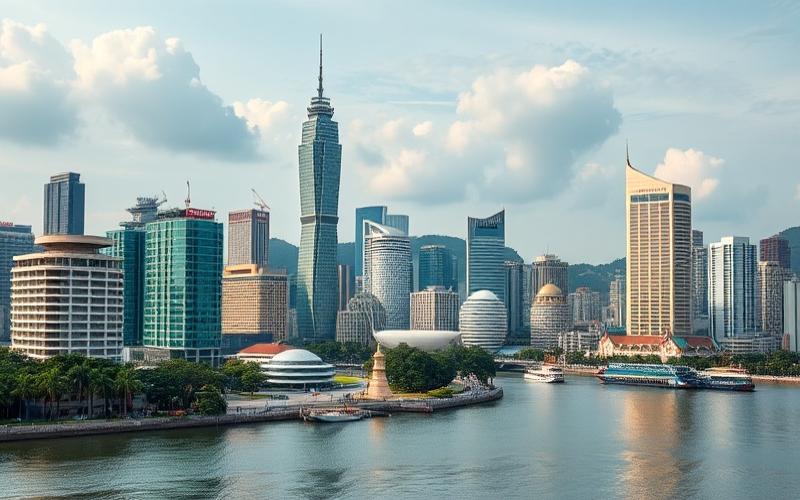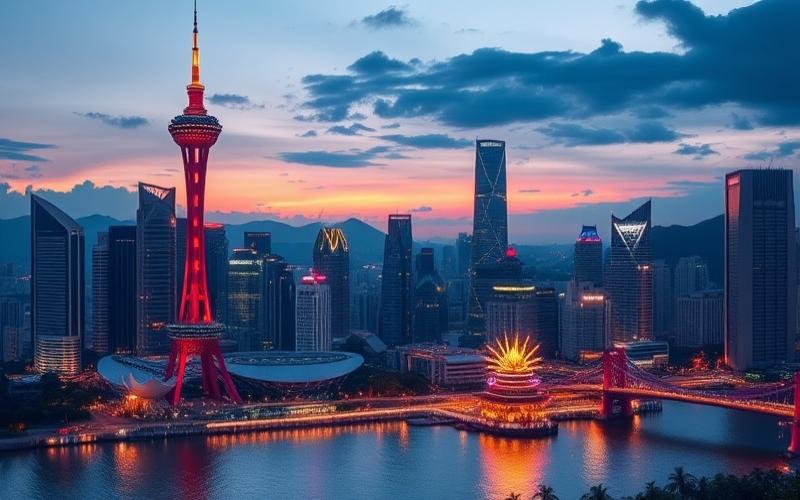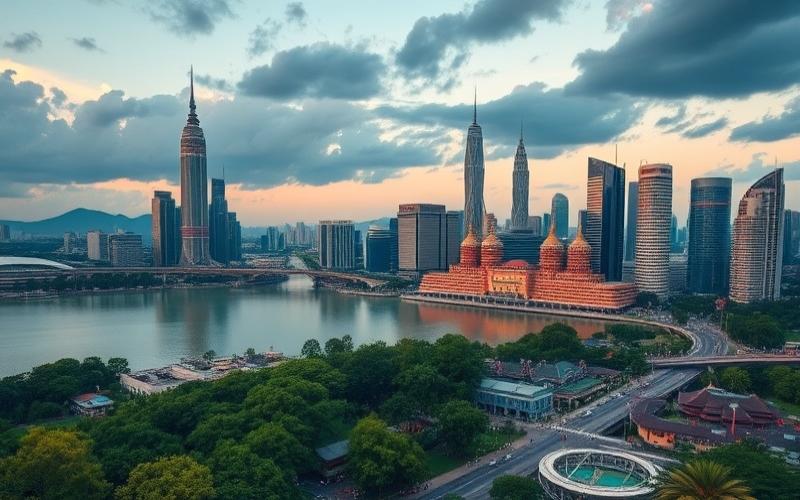
 Published on and written by Cyril Jarnias
Published on and written by Cyril Jarnias
Singapore real estate attracts numerous foreign investors due to its economic and political stability, robust legal framework, and dynamic property market. However, the purchasing process for non-residents involves certain specificities that are essential to understand before getting started. This article will guide you through the key steps and important considerations for acquiring property in Singapore as a foreigner.
The Rules of the Game: Legal Framework for Foreign Buyers
Singapore has established a strict yet transparent regulatory framework to govern property purchases by foreigners. Here are the main points to remember:
The Residential Property Act: This law governs the acquisition of residential properties by foreigners in Singapore. It defines the types of properties that non-residents can purchase without restriction and those requiring special approval.
- Apartments in buildings with more than 6 stories (condominiums)
- Units in residential developments approved as “non-restricted”
- Commercial and industrial properties
- Single-family homes (landed properties)
- Apartments in buildings with fewer than 6 stories
- Vacant land
Permanent Resident Status: Singapore permanent residents benefit from more flexible rules for purchasing restricted properties, although some limitations remain.
It’s important to note that these regulations aim to preserve market accessibility for Singaporean citizens while allowing controlled participation from foreign investors.
Good to Know:
Although restrictions may seem limiting, the condominium market offers numerous investment opportunities for foreigners, with a wide variety of properties in prime locations.
Property Taxation in Singapore: What Foreign Investors Need to Know
The Singapore tax system is renowned for its transparency and stability. Here are the main taxes to consider when purchasing property:
Additional Buyer’s Stamp Duty (ABSD): This additional tax applies to foreign buyers. The current rate is 30% of the property value for a first purchase, and can increase for subsequent purchases.
Buyer’s Stamp Duty (BSD): This progressive tax applies to all buyers, both foreign and local. Rates range from 1% to 4% depending on the property value.
Property Tax: An annual tax based on the estimated rental value of the property. For residential properties not occupied by the owner, the rate is typically 10% to 20%.
Capital Gains Tax: Singapore does not impose capital gains tax on property. However, if authorities determine you are engaged in property “trading,” profits may be subject to income tax.
Rental Income Tax: Rental income is taxable in Singapore, with possible deductions for certain property-related expenses.
It’s crucial to factor these tax costs into your investment plan. A tax advisor specializing in Singapore real estate can help optimize your strategy.
Good to Know:
Although taxes may seem high, they contribute to the stability of Singapore’s property market and the quality of the country’s infrastructure, factors that support long-term property values.
Purchase Documentation: Essential Documents to Complete Your Project
To successfully complete your property acquisition in Singapore, you’ll need to prepare a comprehensive file. Here are the essential documents:
Identification: Valid passport and, if applicable, permanent resident card.
- Bank statements from the last 3 to 6 months
- Income verification (pay stubs, tax returns)
- Proof of available funds for purchase
Option to Purchase (OTP): This document, signed with the seller, reserves the property and sets the sale conditions.
Loan Offer Letter: If financing your purchase with a loan, you’ll need to provide the bank’s offer letter.
Property Valuation Report: An independent valuation report is typically required by banks and authorities.
Marital Status Certificate: This document may be necessary for certain transactions.
Special Approval: For purchasing restricted properties, approval from the Land Dealings (Approval) Unit is essential.
It’s highly recommended to engage a lawyer specializing in Singapore property law to assist with preparing and verifying these documents. Their expertise will help you avoid potential pitfalls and secure your transaction.
Good to Know:
Meticulous preparation of your purchase file is crucial. A complete and well-organized file will greatly facilitate the approval and transaction finalization process.
Green Light for Foreigners: Accessible Investment Opportunities
Despite certain restrictions, Singapore offers numerous real estate investment opportunities for foreigners. Here’s an overview of available options:
Private Condominiums: This is the most popular and accessible option for foreign buyers. These apartments in buildings with more than 6 stories often feature luxury amenities and are located in desirable neighborhoods.
Executive Condominium (EC) Apartments: After 5 years, these hybrid properties between public and private housing become accessible to foreigners, often offering good value for money.
Commercial Properties: Offices, commercial spaces, and industrial buildings are open to foreign investment without restriction.
Approved Luxury Properties: Certain luxury developments, including single-family homes in specific areas like Sentosa Cove, have received special approval for sale to foreigners.
Investment via Real Estate Funds: For those preferring an indirect approach, investing in REITs (Real Estate Investment Trusts) listed in Singapore offers exposure to the local property market without the complexities of direct ownership.
It’s important to note that even if you cannot purchase certain property types directly, you can still benefit from them through rental. Many expatriates choose to rent single-family homes while investing in condominiums or commercial properties.
Good to Know:
Singapore’s property market is known for its resilience and long-term growth. Although prices may seem high, the quality of life, political and economic stability, and Singapore’s continued attractiveness as an international business hub support the value of real estate investments.
Conclusion: A Strategic Investment in a Dynamic City-State
Investing in Singapore real estate as a foreigner certainly presents challenges, but also offers unique opportunities. The market transparency, political and economic stability, and world-class infrastructure make Singapore a prime destination for savvy investors.
The purchasing process, although regulated, is clear and well-structured. With adequate preparation, understanding of tax rules, and assistance from local professionals, foreign investors can successfully navigate the Singapore property market.
Whether you’re seeking a luxury residence, rental investment, or portfolio diversification, Singapore offers a range of options to meet your objectives. The key to success lies in an informed approach, meticulous planning, and a long-term vision.
Good to Know:
Although regulations and costs may seem restrictive at first glance, they contribute to the stability and attractiveness of Singapore’s property market. This stability offers valuable security for investors in an often uncertain economic world.
Disclaimer: The information provided on this website is for informational purposes only and does not constitute financial, legal, or professional advice. We encourage you to consult qualified experts before making any investment, real estate, or expatriation decisions. Although we strive to maintain up-to-date and accurate information, we do not guarantee the completeness, accuracy, or timeliness of the proposed content. As investment and expatriation involve risks, we disclaim any liability for potential losses or damages arising from the use of this site. Your use of this site confirms your acceptance of these terms and your understanding of the associated risks.

